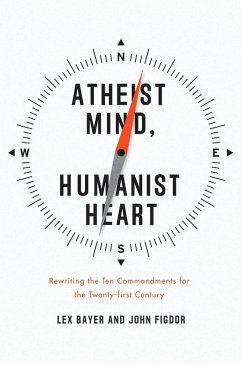
Two Tales of the Death of God (eBook, PDF)
Versandkostenfrei!
Sofort per Download lieferbar
14,95 €
inkl. MwSt.
Weitere Ausgaben:

PAYBACK Punkte
7 °P sammeln!
In the 19th century Friedrich Nietzsche infamously declared that "God is dead." It turns out he was on to something. Across the western world, churches are emptying out and closing their doors, and more and more people are rejecting organized religion. In the early 2000s a group of intellectuals who collectively came to be known as the "new atheists" capitalized on this fact, capturing the imagination of young skeptics and igniting a movement for secularism by arguing that religion is the source of most of our social ills. They believed that the decline of religious belief could be attributed ...
In the 19th century Friedrich Nietzsche infamously declared that "God is dead." It turns out he was on to something. Across the western world, churches are emptying out and closing their doors, and more and more people are rejecting organized religion. In the early 2000s a group of intellectuals who collectively came to be known as the "new atheists" capitalized on this fact, capturing the imagination of young skeptics and igniting a movement for secularism by arguing that religion is the source of most of our social ills. They believed that the decline of religious belief could be attributed to the rise of modern science. This was only the most recent incarnation of a story that has been told since the 18th century Enlightenment, which forged a myth of social progress and western cultural supremacy that has lent legitimacy to the projects of imperialism and global capitalism ever since. The social sciences have another story to tell. It is the story of secularization: a theory that grapples with the astonishing fact of Christianity's fall from its position at the center of western culture. In this version of the story, God was not killed by science, but by a complex set of social and economic changes that have produced greater overall well-being and equality, and by shifting moral values that lead people to view religious ethics as a relic of a bygone era. Stephen LeDrew argues that only the social sciences can explain religion's fall from grace--and the dangers of its resurgence. A coalition of far-right religious extremists is currently working to dismantle democracy in order to preserve white Christian privilege. The evidence from secularization shows that only by working to achieve greater security and equality for all can we halt a descent into an abyss of nihilistic greed and intolerance.
Dieser Download kann aus rechtlichen Gründen nur mit Rechnungsadresse in A, B, BG, CY, CZ, D, DK, EW, E, FIN, F, GR, HR, H, IRL, I, LT, L, LR, M, NL, PL, P, R, S, SLO, SK ausgeliefert werden.













